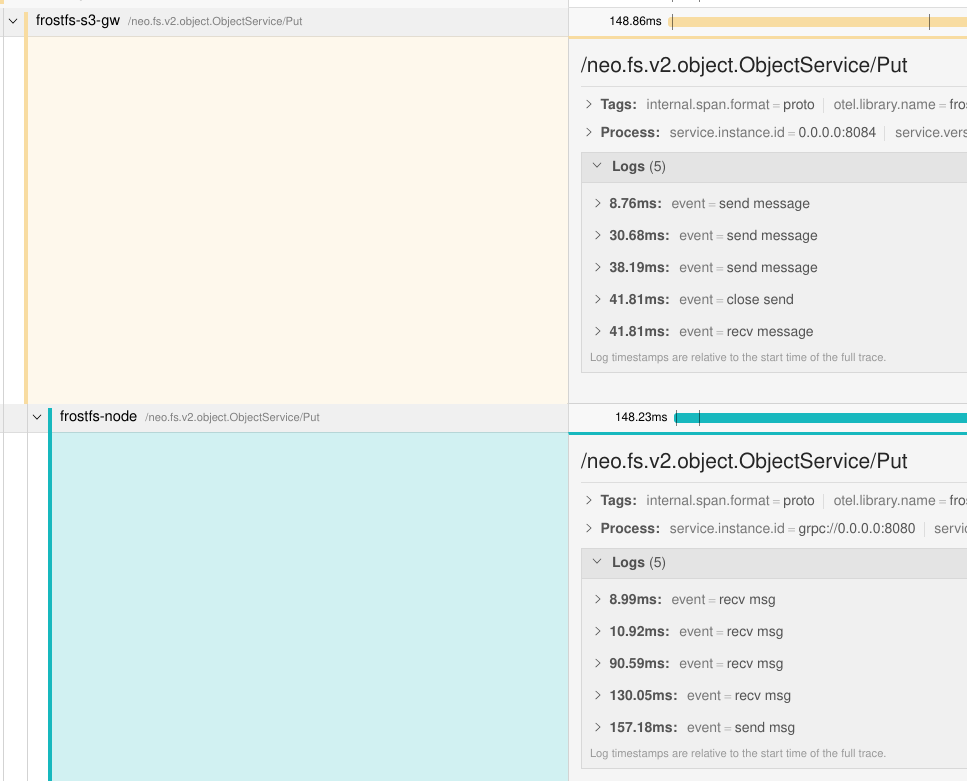generated from TrueCloudLab/basic
Suggestion to track low-level gRPC stream calls #15
Labels
No labels
Infrastructure
blocked
bug
config
discussion
documentation
duplicate
enhancement
go
help wanted
internal
invalid
kludge
observability
perfomance
question
refactoring
wontfix
No milestone
No project
No assignees
2 participants
Notifications
Due date
No due date set.
Dependencies
No dependencies set.
Reference: TrueCloudLab/frostfs-observability#15
Loading…
Add table
Reference in a new issue
No description provided.
Delete branch "%!s()"
Deleting a branch is permanent. Although the deleted branch may continue to exist for a short time before it actually gets removed, it CANNOT be undone in most cases. Continue?
Maybe during deep performance investigation, it can be useful to track timestamps of all
recvandsendevents in gRPC stream. Probably we can define more detailed version of gRPC interceptor to track these events.To do that, span can be stored in
serverStreamandclientStreamstructures. Then callspan.AddEventon structure methods, e.g.It will look like this in Jaeger.

This might be overhead for some cases, so don't hesitate to decline.
I will be immensely happy if you make these changes. In an ideal world, tracing should be enabled only for research, not for the general case, so adding important I/O-related spans is only welcome.
r.loginov referenced this issue2024-11-20 08:36:50 +00:00